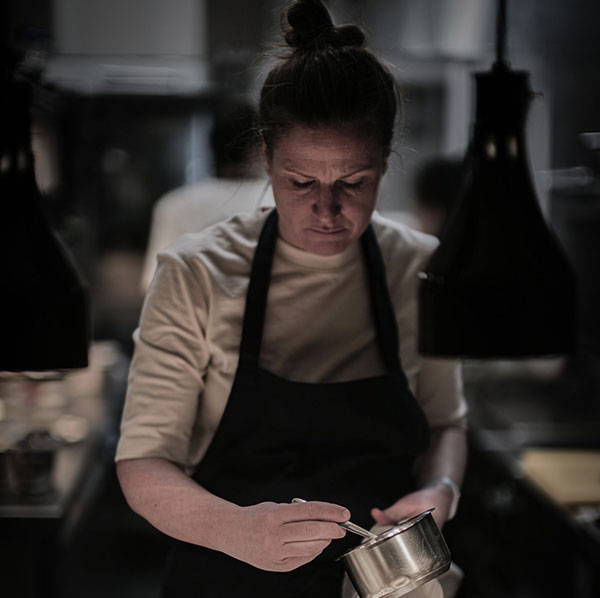The ‘sustainable restaurant’ is on the up as ethical consumers are looking for ways to eat out that match their values. But what does this mean and how does this idea of sustainability take shape in reality?
Wicked Leeks spoke to chef Chantelle Nicholson who has just opened Apricity, a zero-waste, seasonal restaurant in London, about the challenges involved and the difficult decisions that happen behind closed doors.
Wicked Leeks: Firstly, what do you mean by a sustainable restaurant?
Chantelle Nicholson: For me it’s a 360 approach and there are three important aspects. Firstly, how are you looking at the structural entity? How do you disturb the building as little as possible; how do you repurpose what’s there or how do you bring in reusable or upcycled products?
The people side is a big part of it as well. To attract and retain people, how can I create an environment that is going to align with all of my values. So, we only open five days a week, we pay people well, and include service charge within the prices. It was too uncomfortable to know that other people’s judgement was dictating what people were getting paid.
And finally, the sourcing side is all about analysing everything and trying to make as many positive outcomes as possible; local seasonal produce, as little packaging as possible, and how can we keep everything in a circular economy?

WL: How far do you rely on accreditations, like organic or B Corp?
CN: I find it really helpful for suppliers; if someone’s a B Corp, that gives me a bit of comfort. I know that they look after their team, and they’re focused on more than just their bottom line.
It’s tricky if you just go after accreditations, you just spend all your time running after it. In a simple conversation with someone you can get a pretty good gist of what kind of business they run and how they run it. There are a lot of people who talk the talk but do not walk the walk.
WL: What place does meat have in a sustainable restaurant?
CN: I would always advocate that meat is part of a sustainable ecosystem. The holistic side of it is that people and cultures are a huge part of it. I’m from New Zealand; the whole backbone of our country is built on farmers and meat. So, it’s about picking the best possible source for our meat, regeneratively farmed meat and our dairy is from a pasture-fed organic farm from Dorchester.
It’s also about looking at the elements of joy and pleasure; people enjoy eating meat and fish, and I enjoy cooking and eating it. So, if I can find the best possible source and probably use less of it, that seems like a positive outcome.
But I adore vegetables and for me, it’s always great when people who come in who are massive meat eaters and say that mushroom was amazing and make them realise there’s more to vegetables than they’ve seen in the past.
WL: What are the main challenges involved in running a sustainable restaurant?
CN: They’re huge, it’s a constant balancing act. For instance, for our cleaning products do we work with a company that’s a B Corp, or do we work with a company that refills things? We have about 10 different bins to put different waste into and that’s asking a lot more of our staff than a standard operation. For me, I’m lucky I don’t have investors breathing down my neck, so I can make those decisions for myself.
WL: And lastly, what is your go-to ingredient right now?
CN: I’ve really loved discovering hemp. It’s amazing to get that texture and creaminess in something that’s grown in the UK by Hodmedods. It has so many great properties and it has transformed my cooking. We use a lot of it in the veggie dishes and it brings so much richness.












0 Comments